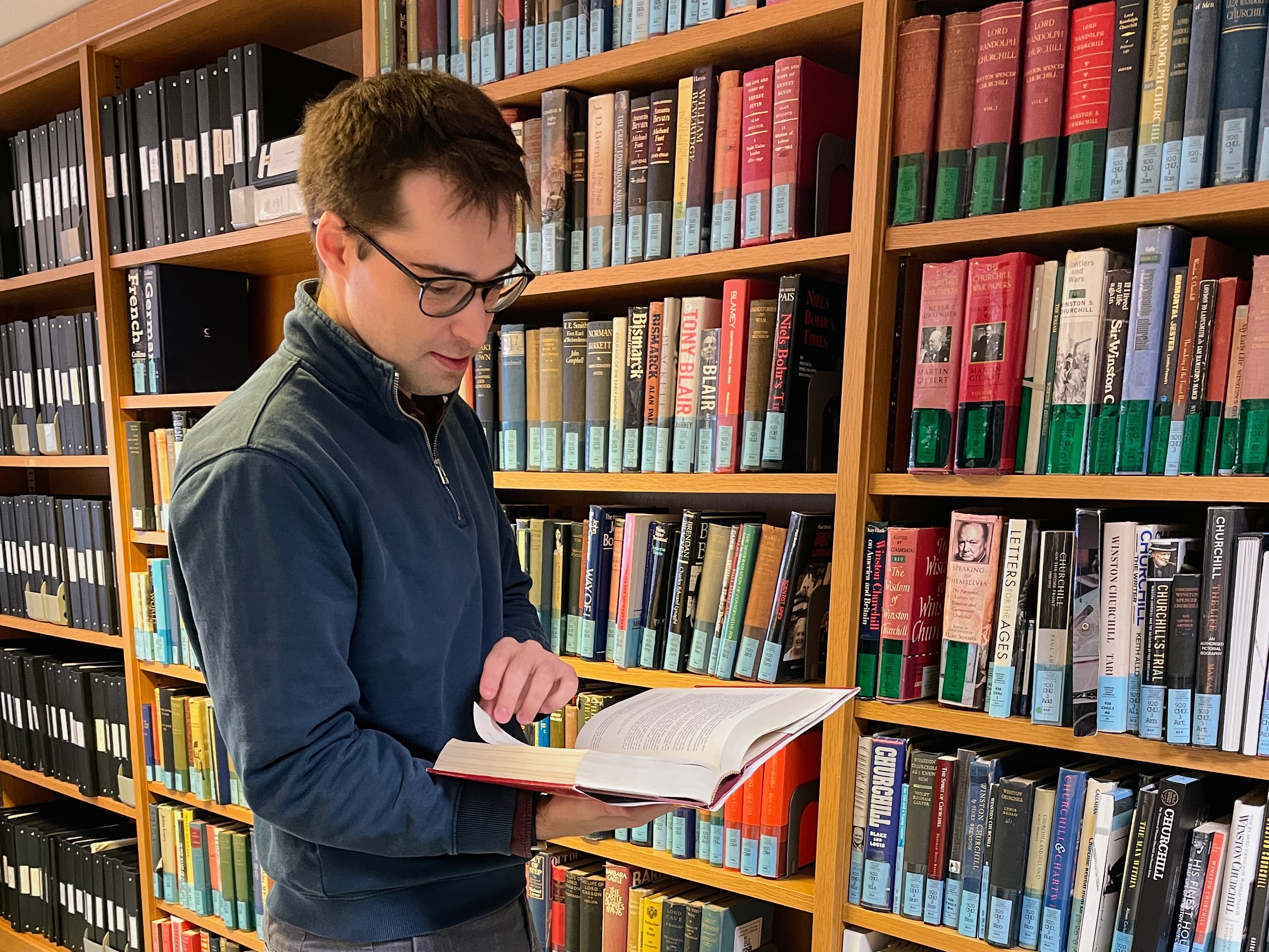James Jarvis Memorial Bursary supports a research trip to Cambridge
Posted on Wednesday 18 October 2023

My research looks at Hong Kong’s transfer from British colonial administration to Beijing, spanning 1979 to 1997, and reassesses Britain’s colonial legacy in its last large colony. I draw on the declassified archives of political institutions and politicians’ personal papers. Several pertinent collections are held in Cambridge. Specifically, the Margaret Thatcher, Jeremy Bray and Enoch Powell papers at the Churchill Archives Centre. I was grateful to receive the James Jarvis Memorial Bursary, which supported my trip to Cambridge in September 2023 to view these collections.
Reviewing Thatcher’s papers shone new light on existing avenues of enquiry and indicated fascinating new research directions, too. For instance, the existing literature has long suspected that Hong Kong’s big businesses had an outsized influence on these decades but has, for the most part, treated ‘business’ as a homogenous category and lacked a strong empirical basis. The Thatcher papers were extremely useful in evincing distinctions within the category and demonstrating how, when Thatcher frequently entertained tycoons, business and politics were indeed often intermingled. The Thatcher papers also reveal more of the ‘official mind’ and a degree of confusion within Downing Street as to how Hong Kong actually worked becomes apparent. Finally, while the papers provide further evidence that economic objectives led British policy (as I have argued in an earlier paper: DOI 10.1080/07075332.2021.2024588), they also reflect a modicum of empathy towards certain quarters in Hong Kong. These findings reflect the value of looking beyond official government files and analysing personal papers, for the latter tend to reflect how interpersonal relationships affected political decision-making.
The Bray papers provide a window into Hong Kong policy from across the aisle. Jeremy Bray was a Labour MP during the premier of Conservative Prime Minister Thatcher. Bray was born in Hong Kong and retained ties there throughout his life, making frequent visits to the colony. Letters, handwritten notes, meeting minutes and other documents held amongst Bray’s extensive papers show the MP meeting with a wide variety of people: from clergy to teachers, businesspeople to lecturers. In contrast to Thatcher’s close circle, which mostly comprised businesspeople, the attitudes of Bray and the wider Labour Party were perhaps informed be a greater variety of individuals in the colony. The Powell papers have inspired a separate direction for me to explore. In 1984, Powell delivered a speech in the House of Commons voicing concern about Hong Kong’s Chinese population and their right of abode in the UK. Afterwards, Powell received a slew of letters from constituents and elsewhere in Britain, many of which were supportive and some downright xenophobic. This is interesting because it has inspired a new research question: How did British public opinion influence Sino-British relations?
With the generous support of the James Jarvis Memorial Bursary, I was able to peer behind the doors of Downing Street, look across the aisle to Her Majesty’s Opposition and gain inspiration for a new branch of research. In addition, having secured this support, I was able to combine this research trip with a Visiting Student position at the University of Cambridge’s History Faculty, giving me access to the Faculty and Library, a temporary supervisor, talks and conferences, and opportunities to network and gain even more ideas for my research. I am, therefore, highly appreciative to have received the James Jarvis Memorial Bursary.
